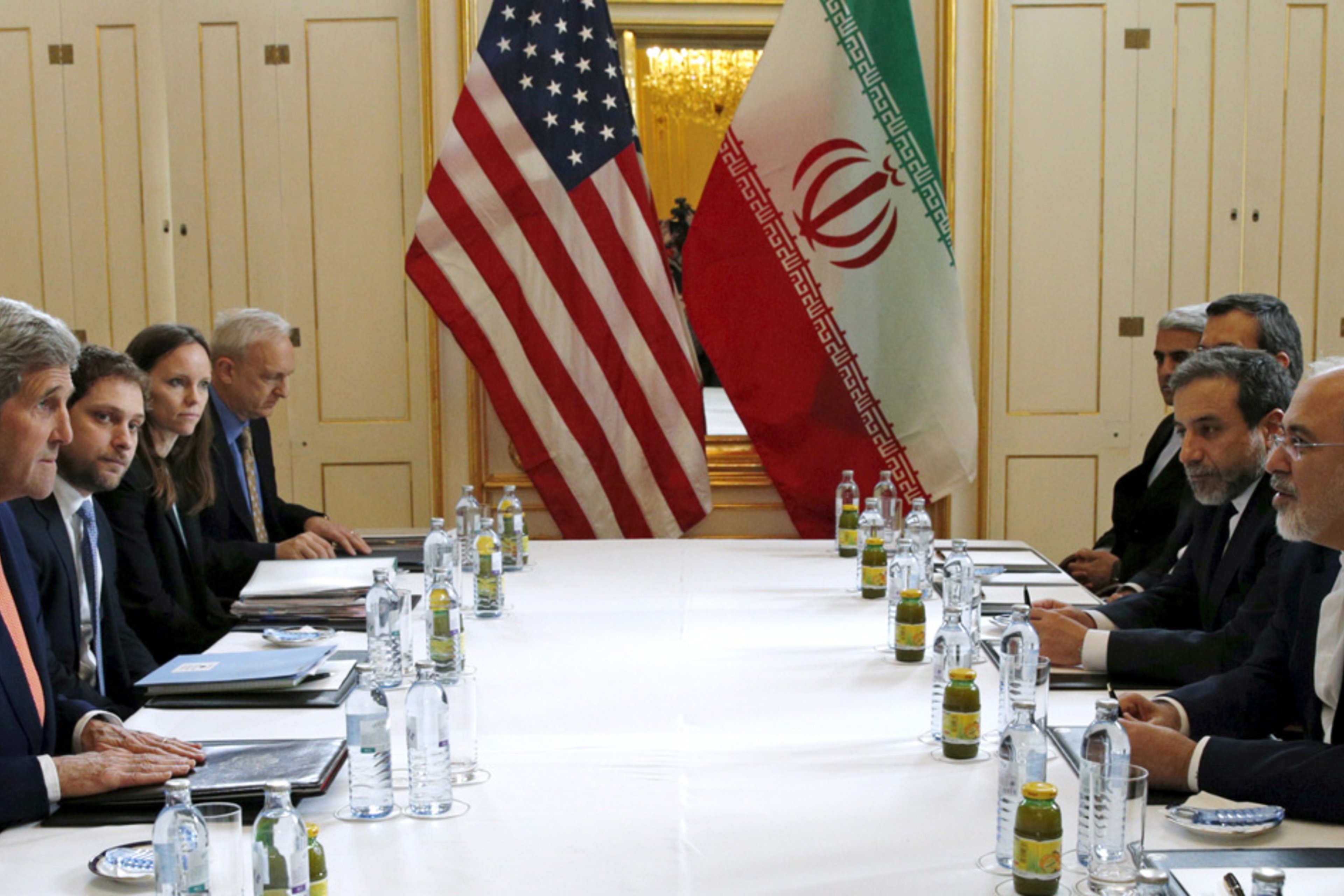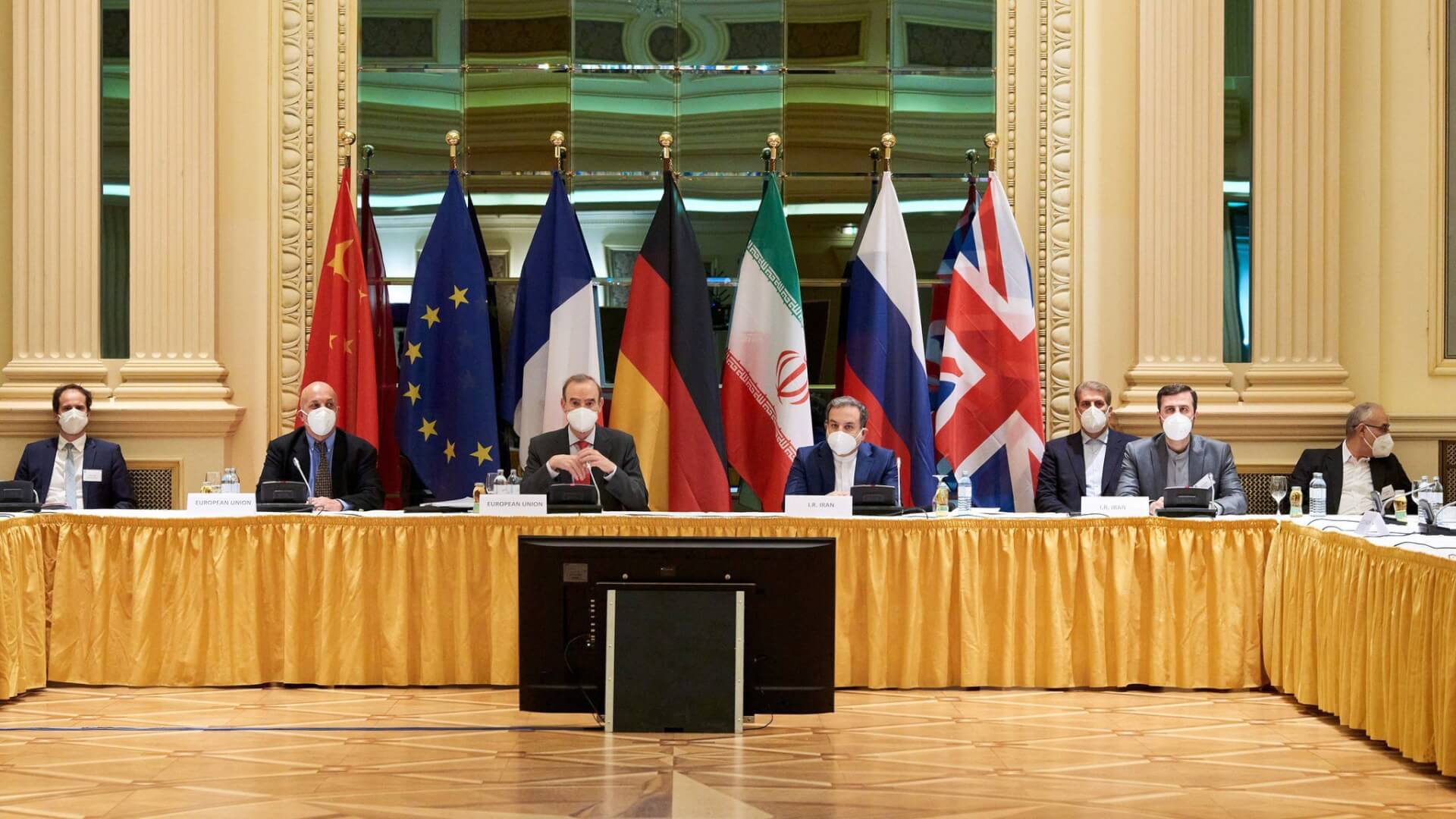On Monday, representatives from Iran, China, France, Germany, Russia, and the United Kingdom (UK) met in Vienna to resume the much-awaited talks to revive the 2015 Iran nuclear deal. The developments in the meeting were communicated to the United States (US), which previously withdrew from the agreement in 2018 under Donald Trump. Monday’s meeting is the sixth round of talks in Vienna to revive the 2015 deal. The talks were shortly halted to allow newly-elected Iranian President Ebrahim Raisi to set up his administration.
Iran and the P5+1 (the United States, the United Kingdom, France, Russia, China, and Germany) signed the landmark Joint Comprehensive Plan of Action (JCPOA) in 2015. The deal, which extended sanctions relief to Iran to significantly reduce its nuclear programme, sought to prolong its “breakout capacity,” the time required to produce highly enriched uranium for one nuclear weapon.
However, the previous US administration led by former President Trump withdrew from the JCPOA in 2018 and re-imposed punitive measures on Iran. After coming to power in 2021, President Joe Biden expressed a willingness to re-join the JCPOA and remove the crippling sanctions.
In the run-up to Monday’s meet, commentators were sceptical about the success of the talks. One of the main reasons for concern was a comment by Ali Bagheri Kani, the top negotiator for Iran, who rejected the principle of mutual compliance. In an article published this Sunday, he said, “The principle of ‘mutual compliance’ cannot form a proper base for negotiations, since it was the US government which unilaterally left the deal.”
Meanwhile, the US has reiterated that sanctions will not be lifted without Iran’s adherence to the deal. With the two countries refusing to budge, the prospective success of the discussions has been drawn into question.
However, following the first day of talks, European Union representative Enrique Mora, who chaired the meeting, expressed his optimism about the upcoming discussions. He said, “I feel positive that we can be doing important things for the next weeks.” He also noted that the countries formed a sanctions working group during the previous round of discussions in April, which is set to resume operations on Tuesday.
Speaking about the discussions with Iran, Mora said that Iran agreed to help advance the results of the previous six rounds of talks. Mora asserted that there is an apparent will from all sides to participate in the negotiations. However, he also said that Iran wishes to bring in the “political sensibilities” of the new administration led by hardliner Raisi.
Echoing this optimism, the Iranian Foreign Ministry released a statement saying that Bagheri Kani had expressed Tehran’s desire to reach a “fair agreement” that would also balance out its interests. Nevertheless, Iran also sought to reemphasise that the ball is in the US’ court. Quoting Bagheri Kani, the release said, “So long as the US’ maximum pressure campaign breathes, reviving the JCPOA is nothing more than exorbitant talk.”
Russia and the UK also celebrated the positive note on which the discussions started.
Israel, however, continues to be sceptical about Iran’s intentions. A day before the meeting began, Israel and the UK agreed to work together “night and day” to “thwart” Iran’s nuclear ambitions. According to The Jerusalem Post, the Israeli military has also begun preparing for a prospective failure of the talks to launch strikes against the Iranian nuclear programme if necessary.
Furthermore, on the same day, Israeli Defence Minister Benny Gantz warned that Iran is “dashing towards a nuclear weapon.” He added that the details of this finding have been shared with the US and other allies.

Before the meeting, several informal discussions were held between Iranian, Russian, and Chinese officials. Commentators believe that the trio may use such discussions to establish a joint front against the US, their common rival, which could further derail talks.

